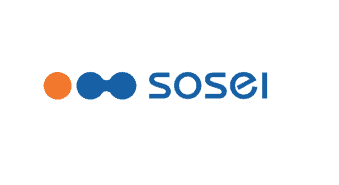
Sosei Heptares has enticed another big biopharma company to sign up to its G-protein coupled receptor (GPCR) drug discovery platform.
Roche’s Genentech unit has agreed to pay the UK unit of Japanese biotech Sosei $1bn-plus in the wide-ranging alliance, although that includes just $26m upfront, with the rest tied to various R&D and commercial milestones.
The pact will see the two companies work together to seek out “novel medicines that modulate …GPCR targets across a range of diseases,” with Genentech responsible for developing and selling any new medicines that arise from the project.
GPCRs are the largest family of proteins found in the membranes of cells, with upwards of 375 GPCRs known to be encoded in the human genome.
They are the site of action of around a third of all currently-used medicines, but more than 100 of them are so-called ‘orphan receptors’ – meaning their physiological functions are unknown and could potentially turn out to be interesting drug targets.
Sosei Heptares has developed considerable expertise in GPCRs that has allowed it to attract a string of partners, with Genentech joining Pfizer, AstraZeneca, Allergan, Novartis, and Daiichi-Sankyo, amongst others. Not all have stayed the distance though – Teva was another partner on a $410m migraine project but ducked out last year and returned rights to the biotech.
Its most-advance project is AZ-partnered adenosine A2a antagonist AZD4635, in a phase 2a trial as a potential immunotherapy for non-small cell lung cancer alone and in combination with AZ’s checkpoint inhibitor Imfinzi (durvalumab).
Additional AZ and Allergan compounds are in early-stage testing, and the biotech also has a clutch if in-house drugs in early testing, although its lead dementia candidate recently ran into some toxicity trouble.
“We believe GPCRs are an important target class that play a role in many serious diseases,” commented Roche’s head of pharma partnering James Sabry, adding: “Sosei Heptares brings truly unique capabilities to enable and accelerate GPCR drug discovery.”
The breadth of candidates in Sosei Heptares’ pipeline prompted the company to hive off some neurological programmes into two virtual companies – called Orexia and Inexia – with funding from Medicxi Ventures.
The companies will develop drugs that activate two molecules called OX1 and OX2 for indications such as narcolepsy.




